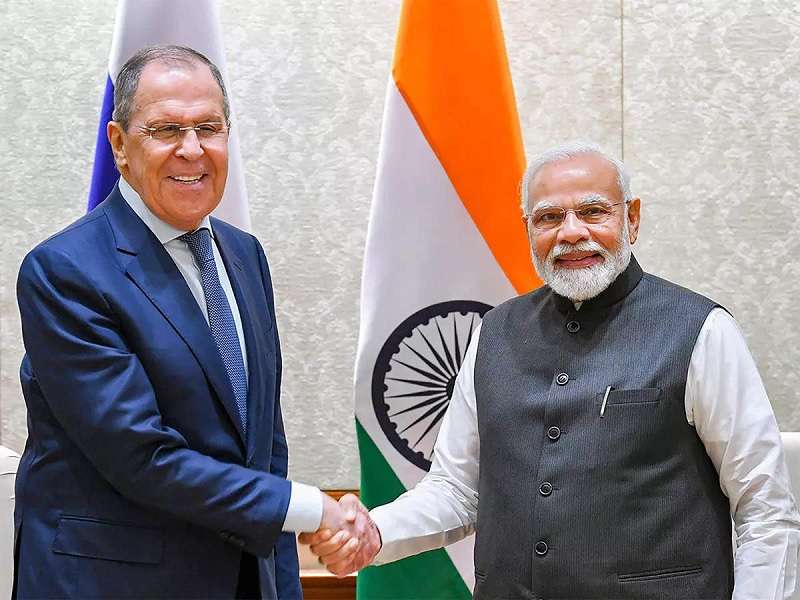Russian Foreign Minister Sergey Lavrov shared some detailed insight into Indian geopolitics during Wednesday’s Primakov Readings, which is important to interpret considering the debate among some in the Alt-Media Community (AMC) over that country’s role in the global systemic transition. In the order of the points that he made on this subject, Russia’s top diplomat began by describing his predecessor Yevgeny Primakov’s Russia-India-China (RIC) troika as the ancestor of BRICS.
He then expressed confidence that India would do what’s needed to keep developing in the event that it’s ever sanctioned by the US like China presently is and unable to purchase that country’s technology. Lavrov then took a turn towards talking about India’s participation in the Quad by referencing that country’s insistence that its interests therein have nothing to do with military cooperation but nevertheless warning that the US still hopes to involve that group in such schemes against China.
Lavrov was directly asked later on to share his opinion about the observation that “India is now leaning more towards the US”, which his interlocutor provocatively added is now even an opinion among some in Russia. That was likely a reference to the pro-BRI policymaking faction that emerged over the past year, which believes that Russia should accelerate China’s superpower trajectory even at the expense of becoming its “junior partner” as revenge against the US for everything that happened since 2022.
They have a zero-sum view of International Relations since they’re convinced that a form of Sino-US bi-multipolarity is inevitable and accordingly suspect that India’s multi-alignment policy is just an excuse for disguising its tilt towards the US. Their “friendly rivals” are the balancing/pragmatic faction, who believe that it’s still possible to midwife complex multipolarity in partnership with India, which they consider to be a counterweight for preemptively averting potentially disproportionate dependence on China.
This background is crucial to keep in mind since it frames the insight that Lavrov shared in response. He started off by reminding everyone about how far back their strategic relations go and how strong they’ve become in the nearly eight decades since India’s independence. He then once again referenced RIC, but added that it hasn’t been able to meet in recent years due to India first requiring the resolution of its border dispute with China, which Lavrov said that “we (Russia) understand.”
The next thing that he said was that the US doesn’t want RIC to reassemble, thus hinting that those two should speedily resolve this impasse in order to not inadvertently advance America’s divide-and-rule interests. On that topic, Lavrov built upon his earlier warning about the US’ plans to explicitly state that “It is also clear that the United States is trying to drag India into the anti-China project. Everyone understands what we are talking about”, but then lauded India for defying US pressure to dump Russia.
Another important point that Lavrov made was to draw attention to how China and India are in relationships of complex interdependence with the Western model of globalization formed by the US, though he immediately clarified that they still understand the need for reforming this system. His remarks that were summarized in the preceding two paragraphs can be interpreted as candid acknowledgements of how serious the Sino-Indo dispute is and the impact it can have on multipolarity.
He pragmatically eschewed blaming either side, though his quip about how “we (Russia) understand” India’s position of not resuming RIC talks until the border dispute with China is resolved suggests a polite reaffirmation of Moscow’s consistent policy of always supporting Delhi’s claims over Beijing’s. This innuendo was then balanced out by warning about the US’ ulterior motives in some of its engagements with India, though without implying that India will ever be receptive to them.
Lavrov’s final comment about how his country’s fellow RIC partners are in relations of complex interdependence with the Western model of globalization was meant to convey that Russia understands the reason why India and China still engage in dialogue and trade with the US. The signal being sent is that his country’s supporters in the AMC shouldn’t recklessly speculate that either of those two have nefarious motives in maintaining those relations like some have done with respect to Indo-US ones.
India and China will keep putting their national interests first as their leaderships truly understand them to be when dealing with the US, and Russia’s trusted ties with each of them mean that its own leadership won’t question their intentions since it knows that they’re not directed against their country. Even so, Russia would prefer for those two to patch up their border dispute as soon as possible since it’s worried that the US will exploit it to divide-and-rule them, which could have serious implications for Eurasia.
That’s not to suggest that Russia fears the scenario of India ever becoming an American puppet, but just that it understands their independent convergence of interests vis-à-vis China, which is nowadays taking the form of them tacitly reopening the “Tibet Question” as explained here and here. This explains why it’s begun to promote a new Eurasian security system in order to ideally create the conditions for India and China to sustainably resolve their problems and correspondingly reduce the risk of another conflict.
Readers can learn more about these efforts here and here, which are beyond the scope of this analysis to detail, but are relevant when remembering that Prime Minister Modi is poised to visit Moscow next month so this might also end up on the agenda of his talks with President Putin. Altogether, the takeaway from Lavrov’s insight into Indian geopolitics is that Russia has a mature and nuanced understanding of its multi-alignment policy, and it trusts that India will always remain a reliable partner.
